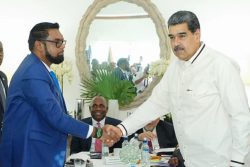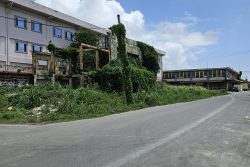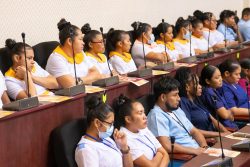Like a rock thrown into a pond, Russia’s 2022 invasion of Ukraine has created waves across the world, reshaping alliances and creating new ones that may well endure.
Marx said revolutions were the locomotives of history. The same might be said of this war and each nation state is now learning how to navigate the new paradigm.
Some existing geopolitical rivalries have been sharpened, most obviously that of the West vs Russia, a tale as old as modern time, stretching back to The Great Game and the British Empire’s policy to contain Russian interests in Central Asia primarily to defend the land routes to its Crown Jewel, India.
Post World War II and the Iron Curtain, the West, through the ideology of free market capitalism and by the creation of the North Atlantic Treaty Organisation, focused on clawing back those Eastern European nations previously under control of the Soviet Union.
Ukraine may have been one country too far.
As we can see with the current state of the war including a halting counteroffensive and the escalation of attacks by both sides on civilian infrastructure, worse calamities are likely to come for the citizens of Ukraine as the second winter approaches. How long NATO and the Western countries can, and are willing, to fund what is a proxy war remains an open question especially given the parlous state of many European economies and their politics including the strengthening of rightwing populism. American elections in 2024 will increasingly come into play.
We can also see that the war has drawn Russia and China closer together. President Xi’s visit to Moscow in March was the latest of 40 one on one meetings with Putin who he once described as “my best and bosom friend,”
Foreign Policy magazine observed that since the beginning of the war, “Their diplomatic coordination has also ramped up as Xi and Putin become increasingly convinced Washington is seeking to undermine their regimes. The two countries almost always vote together in the United Nations Security Council and reinforce each other’s political narratives.”
Tangibly China has become even more important in terms of trade as Russia looks for other markets. Talks are now more urgent for the building of the Power-of-Siberia 2, a gas pipeline to China via Mongolia which could deliver 98 BCM of gas by 2030. However amid the sanctions headlines, it is worth noting that Europe has not formally sanctioned Russian gas and many countries continue to import, albeit at reduced levels.
The war has also upturned the climate change debate. Before all the talk had been about energy transition and reducing fossil fuels. Now it has become about nations securing their own energy resources. This is playing into the hands of the Middle East oil producers who have reaped windfalls. In turn their incomprehensible wealth is buying power and influence around the world. Case in point Qatar is accused of bribing European parliamentarians to argue against any condemnation of human-rights abuses in the run up to the World Cup.
Perhaps the most consequential development coming out of the war has been the re-energisation of BRICS, the fledgling alliance of Brazil, Russia, India, China and South Africa. With over 20 countries now looking to join in order to protect themselves from what they see as US and Western weaponisation of trade, and even talk of its own currency, BRICS may present a credible challenge to the US-dominated world order. It will be of interest to see the outcomes of the 15th BRICS summit to be held in Johannesburg from August 22-24. Significantly President Xi who chooses his foreign visits carefully will be attending.
Most pressing is the rippling effect of the war playing out as we write in Niger and a coup that saw the removal of the French supported President Mohamed Bazoum. The coup leaders must have sensed the timing to be opportune following on from similar overthrows in neighbours Burkina Faso and Mali. The hand of Russia is believed to be behind these events and US Secretary of State Anthony Blinken expressed concern that the Wagner Group mercenaries “could take advantage of the instability in Niger to strengthen their presence in the Sahel” (BBC). One can understand his concern given the US Niger 201 air base which is vital to its drone programme and the War on Terror. The worst case scenario is that war breaks out between these three countries and the members of the Economic Community of West African States (ECOWAS) which has threatened military action over the coup. This could then become a cruel satellite version of the one in Ukraine.
Niger has traditionally been under the influence of the French as part of its proprietary “Francafrique” policy towards its former colonies and their mineral and other resources.
Much has been made of Niger’s uranium reserves and the reliance of French nuclear plants on them but this might be overstated. Additionally some have suggested President Macron might be relieved to be rid of the responsibilities and costs of policing the Sahel against Islamic insurgents.
Most French citizens have long ago forgotten about their former colonies unless the colonies’ descendants are rioting in French streets. But it must hurt for a country that has always had a chip on its shoulder when it comes to its international status. One recalls how furious they were that America and the UK secretly persuaded Australia to buy nuclear submarines over their own contract for conventional vessels worth US$66B.
Coming nearer to home, it could be that France’s current interest and champagne-fuelled charm offensive in Guyana is part of its own pivot as it looks to protect its “petit” department on the South American continent and expand its influence regionally. Closer military liaisons, the upgrading of its diplomatic presence and talk of an embassy suggest an interest that can only be because of the recent discovery of Guyana’s energy reserves. The French major Totalenergies has three stakes in offshore deep water blocks here, and a recent meeting between Suriname President Santokhi and Mr Macron on the sidelines of the Paris EU-CELAC Summit may nudge Totalenergies to finally pull the trigger on Suriname’s Block 58 despite not the most ideal fiscal terms and a weak coalition government in Paramaribo.
Global politics has always been dynamic and is even more so in these times and what is looking more and more like a multi-polar model. France, like any astute and proactive country, is simply positioning itself to further its own interests.








